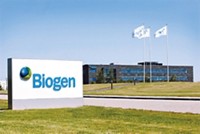Advertisement
Grab your lab coat. Let's get started
Welcome!
Welcome!
Create an account below to get 6 C&EN articles per month, receive newsletters and more - all free.
It seems this is your first time logging in online. Please enter the following information to continue.
As an ACS member you automatically get access to this site. All we need is few more details to create your reading experience.
Not you? Sign in with a different account.
Not you? Sign in with a different account.
ERROR 1
ERROR 1
ERROR 2
ERROR 2
ERROR 2
ERROR 2
ERROR 2
Password and Confirm password must match.
If you have an ACS member number, please enter it here so we can link this account to your membership. (optional)
ERROR 2
ACS values your privacy. By submitting your information, you are gaining access to C&EN and subscribing to our weekly newsletter. We use the information you provide to make your reading experience better, and we will never sell your data to third party members.
Pharmaceuticals
Infinity cuts drug discovery operations
Decision comes after a failed clinical trial for the PI3K inhibitor duvelisib
by Lisa M. Jarvis
June 16, 2016
| A version of this story appeared in
Volume 94, Issue 25
Following yet another clinical setback, Infinity Pharmaceuticals is shutting down its discovery activities. The decision will affect 46 researchers, or 21% of the Cambridge, Mass.-based firm’s workforce. Its stock price tumbled by nearly 70% last week.
The restructuring comes after disappointing results for a Phase II study of the firm’s dual PI3K inhibitor duvelisib in non-Hodgkin lymphoma. The drug candidate, which is being tested in a variety of blood cancers, elicited a 46% partial response in people with a slow-growing type of NHL. That’s far below the 65% response rate stock analysts say the drug would need to compete with Gilead Sciences’ PI3K inhibitor Zydelig, which itself is far from a commercial success.
Infinity’s PI3K program has gone through several partnerships. Originally licensed to Purdue Pharmaceuticals in 2008 as part of a broader drug development pact, the program was returned to Infinity in 2012. Two years later, AbbVie paid $275 million upfront for the right to jointly develop duvelisib.
The failed trial prompted the partners to pause a study that combines the PI3K inhibitor with AbbVie’s Bcl-2 inhibitor Venclexta. They say they are “exploring next steps” for their collaboration.
RBC Capital Markets stock analyst Michael Yee told investors that AbbVie “is unlikely to move forward, and Infinity will need to find a new partner to get the drug across the goal line.” Moreover, Yee estimates Infinity is spending about $30 million per quarter and will need to raise money in the next year.
This is the latest bump in the road for Infinity. Although R&D chief Julian Adams is well known as a gifted drug hunter—prior to arriving at Infinity he was behind the development of the successful proteasome inhibitor Velcade—the company has failed to get any products across the finish line. High profile partners have come and gone for small molecules that block tough targets, including the hedgehog pathway, heat shock protein 90, and fatty acid amide hydrolase. None of those programs succeeded in the clinic.




Join the conversation
Contact the reporter
Submit a Letter to the Editor for publication
Engage with us on Twitter